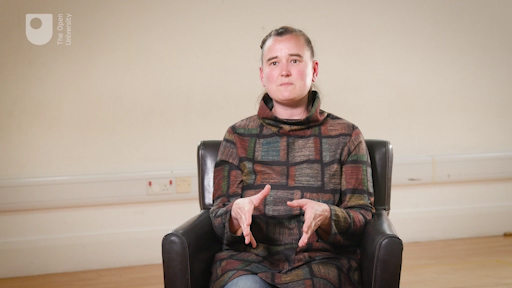4 Connecting with my target market – useful tools
There are many ways to connect with your target market, both face to face and online.

Networking
Many people dislike the idea of networking and feel uncomfortable whenever the word is mentioned. But if you call it what it is – a conversation with another person – it can start to feel less daunting. People have conversations every day for a whole variety of reasons, and this one is no different.
You usually think of networking in the context of an event of some kind, but it can actually happen anywhere and anytime. For example, while waiting in the playground to collect your child from school, through a chance encounter in a queue or when responding to a comment on social media.
The trickiest part is making the initial contact. You don’t need to launch in with a hard sell about your product or service, just take the opportunity to get to know the individual you’re talking to a bit better. For example, if you ask them what they do, they’ll probably ask you the same question – giving you an opportunity to use an appropriately adapted version of your elevator pitch.
Sometimes, having a few opening lines in your mind can make the whole experience a little easier.
Activity _unit6.5.1 Activity 4 Opening lines at an event
Spend a few minutes thinking about how you could start a conversation with someone at a networking event or other occasion. For example, you might start a conversation by commenting on the location or on one of the speakers, or you might ask the other person if they are enjoying the event so far.
Make a note of your ideas in the box below.
Discussion
There are a number of ways you might begin a conversation with someone you’d like to build links with. Here are some examples:
‘So, what brought you here today?’
‘Isn’t this a lovely venue, have you been here before?’
‘How was your journey to get here?’
‘Mind if I sit here?’ then introduce yourself.
In Activity 5, Week 3 [Tip: hold Ctrl and click a link to open it in a new tab. (Hide tip)] , you looked at mapping your network – including people you are aware of but don’t know well or at all. When starting a conversation with them, you could choose something a bit more personal, such as ‘We have a mutual friend [insert name here] who suggested you would be a great person to talk to about….’. Better still, get your mutual friend to introduce you as that will always create a warmer reception.
Doing your homework about someone in advance can be useful too, perhaps allowing you to open with ‘I really enjoyed your book’, ‘I heard your speech at ...’ or ‘I was interested to see your work on …’. This establishes a mutual interest and also delivers a bit of flattery, which may help. Don’t go over the top though!
Online presence
Not all freelancers have or need their own website but if you want to set one up there is a lot of advice available.
Perilli (2021) gives seven reasons why your own website could be useful:
- Acts as an anchor for your marketing – allowing you to centralise your marketing messages.
- Promotes and sells your products/services – acting as a digital brochure.
- Connects with new customers (and keeps existing customers) – you’re there when people search to find a solution to their problem.
- Helps local businesses compete with large brands – providing a great opportunity to connect with local customers.
- Builds credibility – making your brand look legitimate, serious and trustworthy.
- Allows you to control your online destiny – controlling your brand story and your business information.
- Is simple and affordable to set up – building and maintaining a website is easier and cheaper than ever before.
If you have products to sell, you might consider setting up an online shop. One of your first decisions will be whether to self-host via your own website or to sell through an existing online marketplace such as Etsy, eBay or Amazon. Startups.co.uk has a range of useful articles where you can find out more. See Further research for details.
In his article, Williams (2021) acknowledges that ‘as a newcomer to the world of online shopping, a hosted site can be very tempting. After all, they come with lower start-up costs and are, of course, much easier to set up.’ However, ‘a hosted site will surround your products with competition and present little opportunity to get your branding and brand message out there. Not to mention that you’ll need to pay some of your profits back to your host’.
Another option might be to look for funding to help you set up your own online shop. Listen to Rebecca in Video 5 explain how she funded her expansion and what she purchased.

Transcript: Video 5
Another popular way to boost your online presence is to engage with an appropriate social media platform. You’ll find out more about this approach in the next section.
